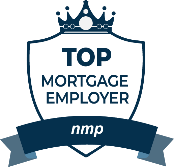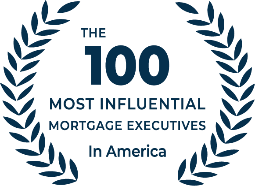Skip to content
Glossary of Terms
- Adjustable Rate Mortgage (ARM):
A mortgage loan with an interest rate that changes periodically. The change in rate is based upon the changes in a specified index . The frequency of change is usually every 6 months or every year but differs from loan program to loan program.
- Adjustment Date:
The date that the interest rate will change for an (ARM ).
- Adjustment Period:
The period of time that determines the frequency of change in the loan interest rate for an adjustable-rate mortgage (ARM ).
- Amortization:
The scheduled loan repayment structure of regular installments including principal and interest.
- Amortization Term:
The period of time required to payoff the mortgage loan in full.
- Annual Percentage Rate (APR):
The number used to compare the overall cost of a mortgage expressed as an annual interest rate. The calculation used to determine the APR includes the note rate of the loan and costs the borrower must pay to get the loan. The APR is usually higher than the actual note rate of the loan. Lenders must disclose the APR to the borrower. It is often used to compare similar loans.
- Appraisal:
A written report prepared by an appraiser to determine the estimated value of a property. Property condition, home size, lot size, marketability and the recent sales prices of comparable homes in the immediate area are among that factors used.
- Appraiser:
A person who prepares appraisals. They are usually licensed and/or certified to conduct appraisals for lenders. They must demonstrate are level of training, field experience and continuing education to meet lenders, and applicable regulatory bodies, requirements.
- Appreciation:
The increase in the value of a property.
- Asset:
Something of value. Assets include bank accounts, stocks, bonds, real property, personal property, collectables, etc.
- Assumable Mortgage:
A mortgage loan that may be taken over by another party when a home is sold.
- Balloon Mortgage:
A mortgage that requires the full balance to be paid in one lump sum, at a predetermined time, before the fullterm of the loan. Monthly payments until that time are calculated as if the loan would be paid over the full termof the loan.
- Balloon Payment:
The lump sum payment that is due on a balloon mortgage prior to the full term of the loan
- Blanket Mortgage:
The mortgage loan that is secured by more than one property
- Bridge Loan:
A loan placed against a borrower’s present home, while it is up for sale or with a sale pending, with the proceeds typically used toward the purchase of a new home.
- Buydown:
Buydown refers to a payment made to reduce the interest rate on a loan before it settles. A temporary buydown provides lower rate and payments temporarily. A permanent buydown reduces the rate and payment for the entire term of the loan.
- Cap:
The stated maximum amount that the interest rate can increase or decrease on an adjustable-rate mortgage(ARM ).
- Clear Title:
Ownership in a property (title) that is free and clear of any liens , judgments or legal questions or issues affecting ownership.
- Closing:
The meeting where the sale of a property is finalized and/or the mortgage loan documents are executed. Also referred to as “settlement .”
- Closing Costs:
Expenses in connection with the sale and/or refinancing of a property. Closing costs can include points, misc. loan fees, attorney fees, taxes, title insurance, survey and recording fees.
- Closing Statement:
The form listing all relevant numbers in the purchase and/or financing transaction at the time of closing (also called settlement). The form is called the “HUD 1” in the industry.
- Collateral:
An asset (typically the home being financed) that is used to guarantee repayment of the loan. If the borrowerdefaults on the loan, the lender will seize the collateral to protect their financial interest.
- Commitment Letter:
A formal, written offer from a lender outlining the specific terms of the loan, the time deadline and the conditions and requirements that must be met in order to close (or “settle “) on the loan.
- Comparables:
Used by the appraiser to help determine the fair market value of a property, the “comparable sales” are properties which have recently sold that are similar in size, style, condition and proximity to the property being purchased/financed.
- Conforming Mortgage Loan:
A mortgage loan that is approved using guidelines issued by Fannie Mae and Freddie Mac . The maximum conforming loan amount is $417,000.
- Construction Loan:
A loan specifically designed to fund the construction of a home. The lender disperses “draws” of money at certain stages of completion as the home is constructed. This is a short term loan for the construction phase and usually requires and permanent loan “take out” or “commitment” to be in place before construction begins.
- Conventional Mortgage:
A mortgage loan that is not insured in any way by the federal government such as a VA or FHA loan. These loans are usually approved using guidelines issued by Fannie Mae and Freddie Mac.
- Cost Of Funds Index (COFI):
One of the indexes that can be used to set the interest rate for some adjustable-rate mortgage (ARM ) loans It is determined by the Federal Home Loan Bank of San Francisco 11th District.
- Credit Report:
A report reflecting the credit payment history of an individual. A lender will review this report is a major factor in the loan approval process and in determining the interest rate that will be charged on the loan. It is prepared by using a one or more credit bureaus records.
- Credit Repository:
A firm that collects and interprets information including current and historical credit activity, financial records and public record data on individuals from many sources. This information is the basis for the credit reportsused by lenders.
- Credit Score:
A number, ranging from about 350 – 850, reflecting a computer program’s evaluation of your credit history, balances, inquiries, available credit and other factors. Credit scores are used by many firms making lending decisions. Each of the three major credit repositories (TransUnion, EquiFax and Experian) have their own formula (known as EMPERICA, BEACON and FAIR ISSAC respectively) and commonly referred to as a FICO score. The higher the score the better.
- Deed:
The legal document that establishes and conveys ownership in real property.
- Deed-In-Lieu:
Ownership is surrendered in a property from the borrower to the lender by a “deed-in-lieu” given in place of aforeclosure in attempt to satisfy (pay) the mortgage debt.
- Deed Of Trust:
The document used in certain states in place of a mortgage. Title (ownership) is conveyed to a trustee while the mortgage debt is repaid.
- Default:
Failure to meet the agreed upon terms of the mortgage. This can include delinquent mortgage payments, failure to maintain insurance, failure to pay real estate taxes, poor maintenance or any other requirements listed in the mortgage document.
- Delinquency:
A failure to make scheduled mortgage payments on time.
- Depreciation:
A decline in asset or property value.
- Down Payment:
The money that the buyer pays in cash toward the purchase price of a home.
- Earnest Money Deposit:
The deposit made by the buyer at the time an offer to buy a home, to demonstrate the sincerity of their offer.
- Equal Credit Opportunity Act (ECOA):
A federal law requiring that lenders offer credit decisions without discrimination based on race, color, religion, national origin, age, sex, or marital status.
- Equity:
The difference between what a property is worth and how much is owed on the mortgage(s) .
- Escrow Account:
An account established by the mortgage servicer (who you make your payments to) to accumulate and disburse the borrower’s property taxes, hazard insurance, mortgage insurance and other items.
- Escrow Payment:
The portion of the monthly mortgage payment that is deposited into the escrow account and used to pay property taxes, hazard insurance, mortgage insurance and other items.
- Fair Credit Reporting Act:
A law that establishes consumer rights regarding credit reporting and regulates the use and disclosure ofcredit reports by consumer/credit reporting agencies.
- Fair Market Value:
The highest price a buyer, willing but not compelled to buy, would pay, and the lowest a seller, willing but not compelled to sell, would accept.
- Fannie Mae:
The Federal National Mortgage Association. A congressionally chartered, shareholder-owned company that is the nation’s largest sources of home mortgage funds.
- Freddie Mac:
The Federal Home Loan Mortgage Corporation. A congressionally chartered, shareholder-owned company that is one the largest sources of mortgage funds.
- Federal Housing Administration (FHA):
An agency within the U.S. Department of Housing and Urban Development (HUD). Its primary function is insuring residential mortgage loans made by private lenders.
- FHA Mortgage:
A mortgage that is insured by the Federal Housing Administration (FHA) and approved using FHA guidelines.
- First Mortgage:
A mortgage that is the primary lien; in “first lien” position against the property used as collateral .
- Fixed Rate:
An interest rate that does not change during the entire term of the loan.
- Foreclosure:
The legal process by which a borrower, who is in default of the terms of the mortgage, loses their interest in the mortgaged property. The property is sold at public auction with the proceeds applied to the mortgage debt.
- Good Faith Estimate:
An estimate of charges a borrower will likely incur in connection with a property purchase/mortgage settlement.
- Hazard Insurance:
Insurance against loss to real estate caused by fire, accidents, vandalism, etc..
- HUD:
The U.S. Department of Housing and Urban Development.
- Jumbo Mortgage:
A mortgage loan in excess of $417,000.
- Index:
A predetermined, published interest rate used as a “base” to determine the new interest rate on an Adjustable Rate Mortgage (ARM) when it is time for the rate to change. To this “base” rate a margin is added to determine the rate for that period until the next scheduled rate change. Usually the index will be tied to the 1 Year Treasury Bill, 6 Month LIBOR, or the 11th District Cost of Funds (COFI) .
- Lien:
An encumbrance placed against real property for money due as in “mortgage lien”.
- Lifetime Cap:
The limit on the highest interest possible over the life of an adjustable rate mortgage (ARM ).
- Loan to Value Ratio (LTV):
The ratio of the amount of the loan to the value of the home. The lower the LTV the more favorable the rate andterms usually offered by a lender.
- Lock-In:
A written agreement guaranteeing a specific interest rate and point cost on a specific loan. The loan mustclose within a specific period of time.
- Margin:
The number added to the index to determine the ARM interest rate at each adjustment period. Example: the index is 5.12 (as determined by the applicable measure), the margin is 2.75, the interest rate for the next period would be 7.87% .
- Mortgage:
A legal document that pledges a property to the lender as collateral for repayment of a loan.
- Mortgage Insurance:
Insurance that protects the lender against a financial loss due to a default by the borrower . Loans with an LTVover 80% usually require mortgage insurance.
- Mortgagee:
The Lender in a mortgage transaction. An entity (a person or company) who lends the money and receives a mortgage as collateral for the loan.
- Mortgagor:
The Borrower in a mortgage transaction. The person who receives the money and gives a mortgage as collateral for the loan.
- Non-Conforming Loan:
A loan that does not meet the guidelines of Fannie Mae (FNMA) or Freddie Mac (FHLMC) due to loan amount (over $227,151), higher debt ratios, credit history and other reasons. Non-conforming loans usually have a higher interest rate than do conforming loans.
- Note:
The written agreement from the borrower to the lender listing the loan amount, interest rate, term , dollar amount and schedule of payments due and the specific promise of the signer to pay the lender.
- Origination Fee:
A fee imposed by a lender to the borrower in connection with making a mortgage loan. Typically express aspoints or a percentage of the loan amount.
- Owner Financing:
A loan provided by the seller to the buyer of the real estate. The loan can be a first or second mortgage .
- PITI:
Principal, interest, taxes and insurance–the total monthly mortgage payment when taxes and insurance are escrowed.
- Points:
Fees charged by the lender. Each point represents 1% of the amount of the loan.
- Prepaids:
Expenses paid in advance of their due date at the time of closing including taxes, insurances, association dues, rents, etc.
- Prepayment Penalty:
A fee charged by the lender against a borrower who wants to pay off part or all of a mortgage loan in advance of schedule. Not all loans have prepayment penalties. The written terms of the mortgage note determine if a prepayment penalty is applicable on a loan.
- Principal:
The amount of loan debt, not including interest.
- Private Mortgage Insurance (PMI):
Insurance that protects lenders against a financial loss if the borrower defaults on the loan. PMI is usually required for conforming loans with an LTV over than 80%.
- Qualifying Ratios:
The ratio of your monthly expenses to your gross monthly income. It is used to determine how much money a borrower qualifies for.
- Rate Cap:
The limit on how much the interest rate can change on an ARM at each adjustment period or over the life of the loan.
- Rate Lock-In:
A written agreement guaranteeing a specific interest rate and point cost on a specific loan. The loan mustclose within a specific period of time.
- Refinancing:
Paying off one loan with a new loan using the same property as security.
- Residential Mortgage Credit Report (RMCR):
A credit report that utilizes credit information from at least two of the three national credit bureaus and information provided by the borrower on the loan application.
- Second Mortgage:
A mortgage that is the secondary lien; in “second lien” or “junior” position against the property used ascollateral .
- Settlement:
The meeting where the sale of a property is finalized and/or the mortgage loan documents are executed. Also referred to as “closing .”
- Survey:
A drawing showing the measurements of the boundaries and dimensions of a parcel of land, including the location of all improvements on the land.
- Term:
The length of time and number of payments due under of a loan
- Title:
The record of the of right of ownership and possession of real property.
- Title Insurance:
Insurance against loss resulting from claims against and/or defects of title to real property.
- Title Search:
An investigation into the history of ownership of real property and search for liens , unpaid or disputed claims, or restrictions.
- Truth-in-Lending Act:
A federal law requiring the disclosure of loan terms using a standard format. This is intended to be used when comparing the lending terms of different financial institutions.
- Veterans Administration (VA):
The government agency charged with administration of affairs concerning Veterans of the Armed Forces of the United States. It provides guarantees for mortgage loans with no down payment to qualified veterans.
Freedmont Mortgage
Page load link











